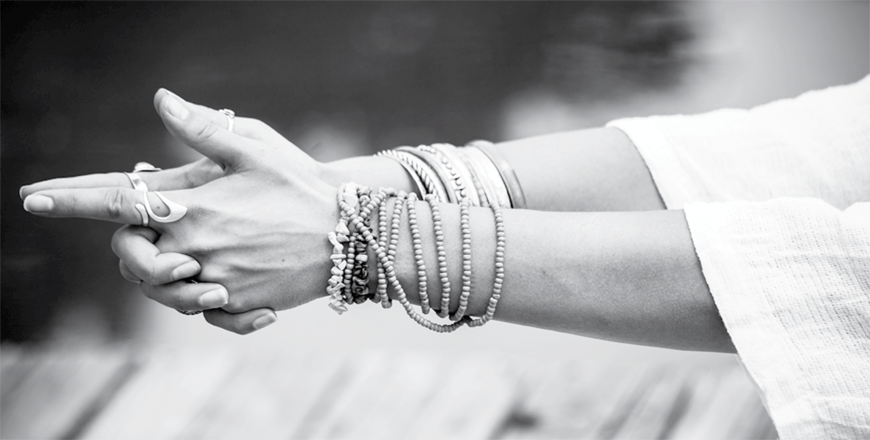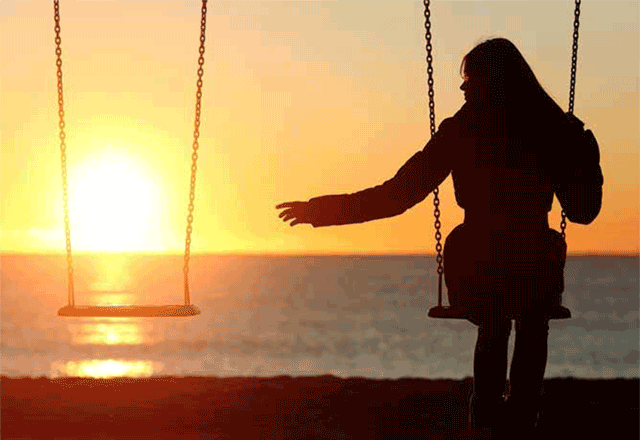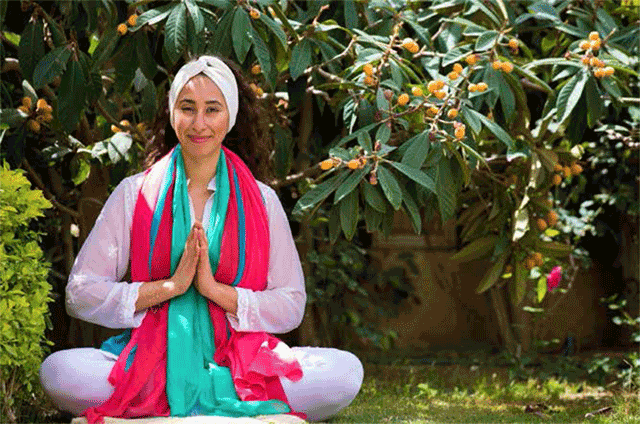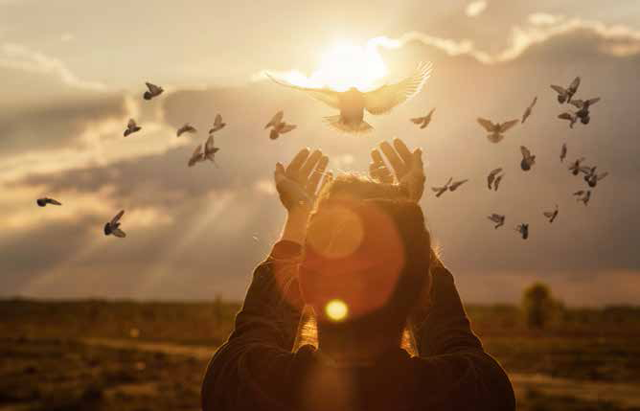You are here
Gaza Unfolding Wisdom, Grace & Compassion
By Shama Kaur , Family Flavours - Dec 17,2023 - Last updated at Dec 17,2023

Photo courtesy of Family Flavours magazine
By Shama Kaur,Kundalini
Yoga Teacher & Wellness Mentor
My Journey in Palestine
A few years back, I had the privilege to be invited by Palestinians in Bethlehem to run a Kundalini Yoga Teacher Training Programme at Beit Shams (Home of Light).
As I traversed the enchanting landscapes of Palestine, I couldn’t help but be captivated by the land’s beauty and the enduring spirit of its people.
My journey, spanning from Ramallah to Jericho, Nablus to Jerusalem and Tel Aviv, revealed stark contrasts between the eastern and western regions. These differences were evident through numerous checkpoints, the infamous wall, interrogations and disparities in infrastructure.
The yogic response The question is how do we, as yogis, respond consciously to the suffering of others without getting divided, but instead uniting together towards Oneness? Yet, this divide isn’t new; it’s a recurring theme throughout our history: The transatlantic slave trade subjected millions of Africans to cruelty and apartheid enforced racial segregation in South Africa.
Colonial powers, like the British in India, colonised Africa and Aboriginal lands in Australia, while in the Americas, Native American lands were similarly colonised.
The question is how do we, as yogis, respond consciously to the suffering of others without getting divided, but instead uniting together towards Oneness? First, we must acknowledge that, as yogis, peace activists and humanitarians, our shared common values are peace, compassion and non-violence.
The killing of innocent lives, separation of families, displacement of people and destruction of homes, goes against the aspirations of the spirit at heart. So how can we use our consciousness to navigate a world, where darkness seems to prevail and overshadow the light of consciousness? Here are some yogic teachings to help us through these stressful times:
Recognise, accept, agree
Yogic teachings shed light on the law of Karma, where every action has a reaction. The Karma that one inherits from seven generations back, continues to impact the individual and the nation, seven generations forward. If we share this perspective, then accepting the current status quo becomes more possible even if we are unable to change the course of what is unfolding.
We can also pay attention to what is awakening within us in response to the atrocities taking place, and agree to serve the destiny of our own soul in the direction that it is being deeply called.
Powerlessness
Most of us feel completely powerless in the face of the brutal suffering that is happening in Gaza. But the yogi desire not to gain power over the outside world, but rather to raise their own inner power and act as a saint first before a warrior.
To feel powerlessness is an opportunity to grow in consciousness so that we do not create so much pain and suffering in the future. We can ask ourselves, what is my role here in what is unfolding? What power do I have to influence a positive change for the future? As parents, you may be nurturing children and embody values of non-violence, peace and tolerance. As a political figure, your aim could be to shape policies that prioritise truth, equality and harmonious coexistence. As an activist, your goal might be to sway public opinion towards justice through fostering unity.
As a writer, you may strive to articulate words of truth and inspiration. As a teacher, your purpose could be to provide clarity, wisdom and healing to the hearts and minds of those grappling with the distressing suffering of others. Each of us has a unique destiny, a way in which our unique gifts can be used in service of a higher frequency future. What is your way to serve? How can you truly make a positive change in the world?
From Separation to Oneness
Wisdom is understanding that oppression and violence have regularly been part of human existence, like the unending interplay of elements such as the sun and the moon, joy and sorrow, light and darkness, day and night, which are inseparable.
Wisdom wants to teach us that without war, we might not fully appreciate peace.
Without suffering, the depth of compassion might elude us. While violence is tragic, it can awaken the dormant humanity within us, shedding light on our potential for change and progress.
Living in the Aquarian Age
Yogi Bhajan taught that the transition into the Aquarian Age comes not only with great gifts but also with its challenges. Known as the age for the rise of the feminine, this age emphasises innovation, individuality and personal growth for the sake of social change and freedom, shifting towards humanitarian values over materialism. But not everyone has entered this shift.
Many continue to operate in the old way, known as the Piscean Age, where hierarchy, competition and material gain hold greater sway, often resulting in division and conflict. You might notice a significant division within your own family and household.
Newer generations often hold contrasting values and perspectives compared to older generations who are more rooted in the Piscean Age.
Understand Through Compassion
The Aquarian Age invites us to understand through compassion, or else, we risk misinterpreting the current times.
Compassion, at its core, means to “suffer with”. It’s about immersing yourself in another’s pain and genuinely feeling it as your own. It entails imagining that you are the one facing the violence, oppression and abuse. You become the person who lost their home, land, family and dignity.
Only then can you authentically understand and share another’s suffering.
Compassion involves not only understanding the suffering of the victims but also empathising with the aggressors. It means stretching your imagination to fathom the pain that might have driven them to resort to violence in search of solace or survival.
The ability to sense another’s pain as your own is a remarkable gift.
It’s like a divine grace allowing you to truly empathise with the suffering of others.
But once you feel that pain, what comes next?
From the ‘I’ to ‘We’
Why is it that the unquenchable thirst for wealth and power continues to drive individuals and nations to prioritise material gain over fundamental truths? Is it possible that a “wrong knowledge” of reality obscures one’s vision and leads to a belief that violence serves the best interests of someone or something? The mind is keen to understand, but just imagine for a moment that you are seeing the world through coloured lenses.
Some see it in red, others in black, both obscuring the truth. Some view the world through the “I” and “My”, what can be referred to as the lower chakras, while others view the world through the “We” and “Us”.
In these times, it is ever more important to focus on the “we” versus “them”. It is a time to awaken the muscles of the heart center which is the key to balancing the polarities of earth and heaven, worldly desires or spiritual transformation.
In the heart, there is no division. It is only the mind that creates duality. But the heart does feel pain. In a fastpaced, chaotic world, it’s easy to fall into this state of “feeling nothing”, coldness or apathy which Yogi Bhajan referred to as Cold Depression. The solution is to allow yourself to feel the pain without shutting down and also without unconsciously reacting. Then you can consciously choose how you want to act.
From Pain to Love
In my spiritual journey, I’ve discovered that emotional numbness serves as a shield against overwhelming pain.
It’s our defence mechanism that creates filters to make life feel more manageable. This explains why some find silence safer than confronting the world’s suffering. But the truth is that we all have different ways and capacities to deal with the pain and suffering of the world.
Everyone grieves in different ways.
Through my own journey of pain and love, my teacher always taught me to keep my love one step ahead of pain. In his words; “When the pain is so great, we point the finger at the one who caused the hurt instead of taking responsibility for our own pain. The reality is that your pain is showing you that you do have a heart,” Shiv Charan Singh, Spiritual Teacher.
To heal the emotional wounds of the heart, we need to bring calm to the nerves that hold the wound.
These soothing meditation techniques (kriya courtesy of YB Teachings, LLC) allow the autonomic system to relax and the breath to slow to a meditative pace, bringing renewal and relaxation to the heart and mind.
Posture: Sit in Easy Pose with a straight spine and a light Neck Lock.
Mudra: Palms together, lightly touching. The tip of the Saturn (middle) finger is at the level of the Third Eye Point. The forearms are horizontal to the ground, elbows high. Look within.
Continue for 11, 31, or 62 minutes. Then inhale, exhale, relax the breath and with clasped hands stretch the arms up for 2 minutes.
Learning from the Wisdom of the Past History tends to echo the law of Karma, where every action leads to a reaction or every sequence leads to a consequence. Repetition offers us chances to evolve and alter our course. It’s this pattern that fuels revolutions and sparks transformation. The mantra
“Sa Ta Na Ma” in Kundalini Yoga signifies the cycle of existence — birth, life, death, and rebirth.
Much like the changing seasons and the cycle of life, our evolution is tied to recognising the need for transformation. Just as the earth renews itself after a cold winter, we, too, must embrace change for growth. The Aquarian Age calls on us to break free from repeating cycles, acknowledging that rebirth comes after death, just as spring blossoms do from the seeds of winter.
Reprinted with permission from Family Flavours magazine
Related Articles
When things ended, my heart was shattered. I couldn’t sleep without checking my phone a million times. I couldn’t eat for days and lost a lot of weight. I was teaching a Level 1 Kundalini Yoga Teacher Training in Palestine at the time and I remember hiding in the bathroom during breaks while I wept and my entire body shook with complete disbelief.
The practice brings to our awareness our self-limiting beliefs and habit patterns that we inherited from the past. It invites us to process and release painful memories that are stored in our subconscious. It awakens our ability to become intuitive and sensitive, to understand a person or a situation even if no words are spoken- to realise the consequences of actions before they happen.
Amidst the unsettling backdrop of the abhorrent genocide in Gaza and its ripple effect across the West Bank, Lebanon, Iraq and Sinai, a sense of trepidation and unease envelops me.














